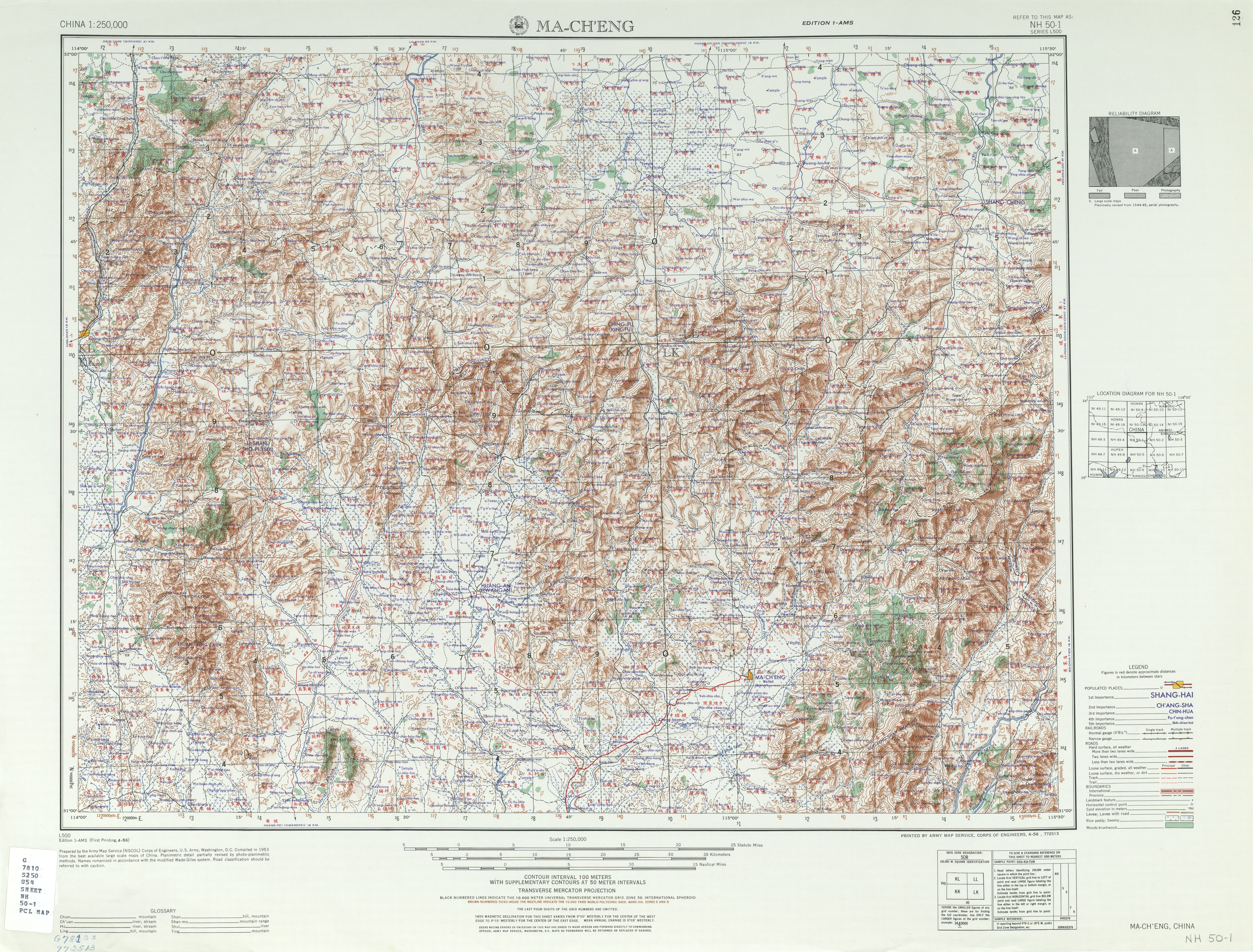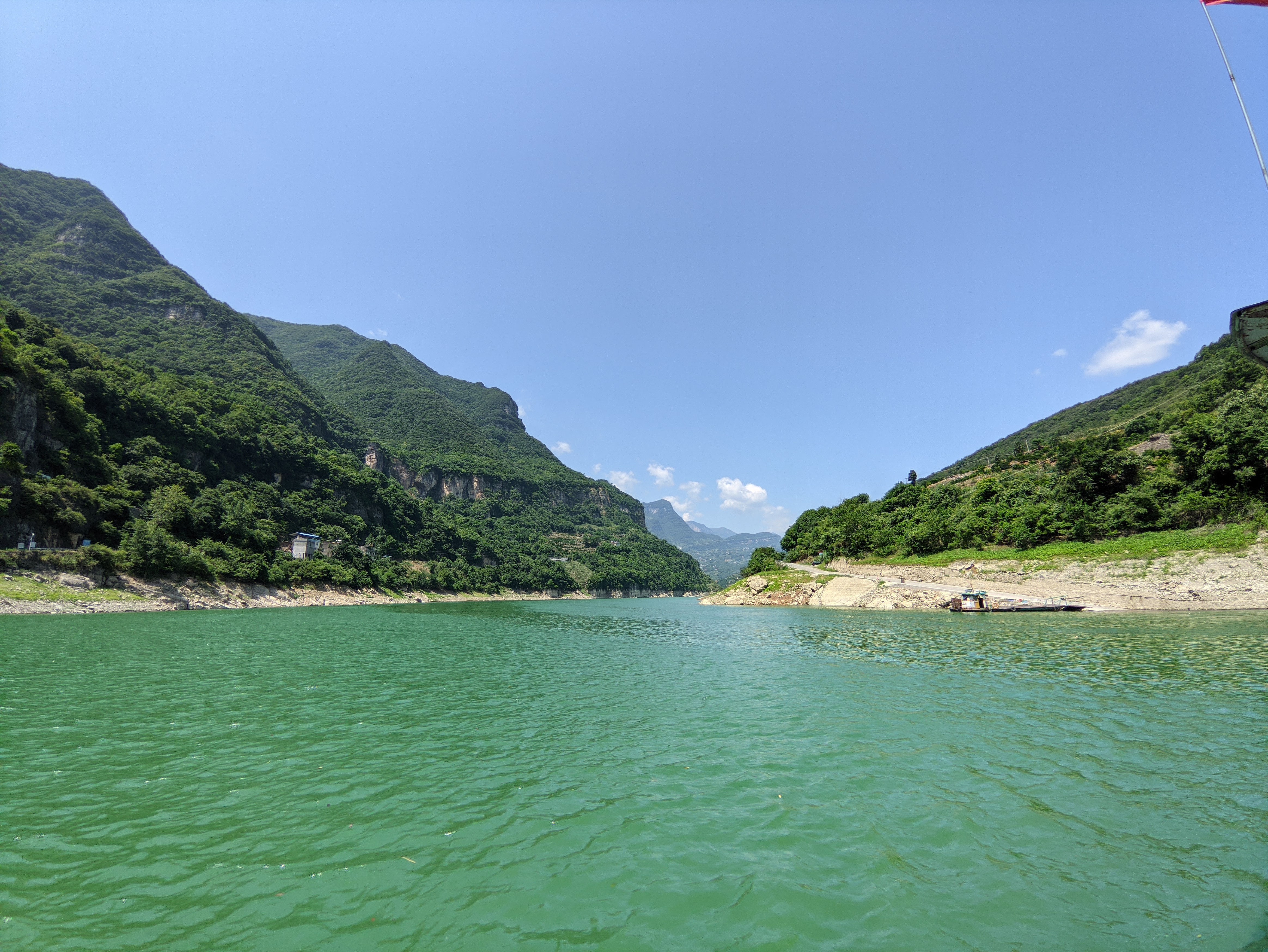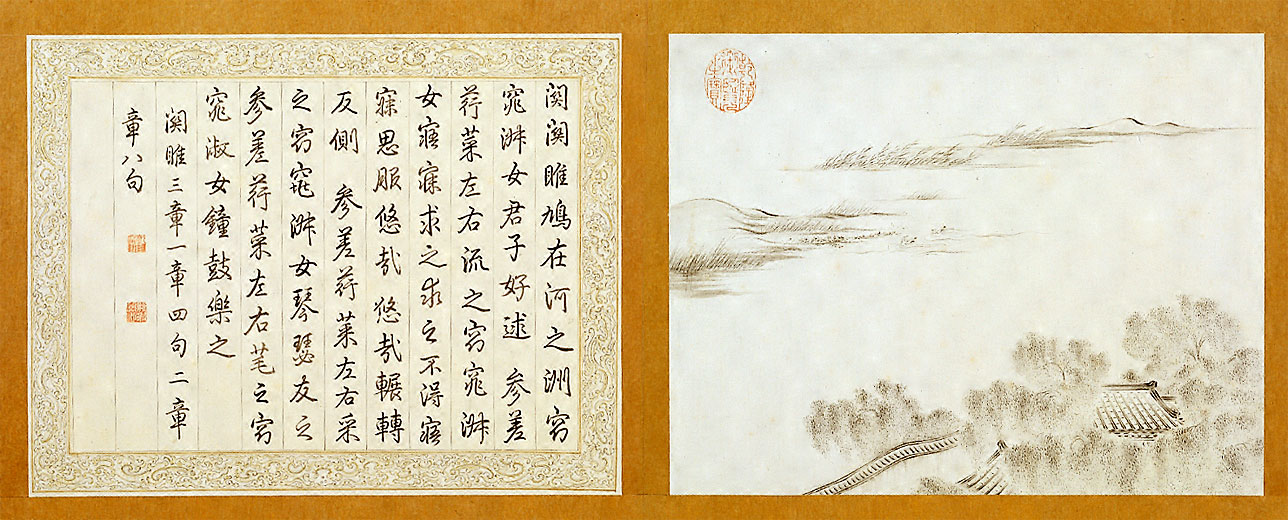|
Dai Jianye
Dai Jianye (; born 1956) is a Chinese Classical literature researcher who is a professor at Central China Normal University. Biography Dai was born in Macheng, Hubei, in 1956. In 1985, he graduated from Central China Normal University Central China Normal University (CCNU) is a public normal university located in Wuhan, Hubei, China. It is affiliated with the Ministry of Education, and co-funded by the Hubei Provincial People's Government. The university is part of Project .... After graduation, he taught at the university. Works * * * * * * * * * * * * * * * * * Honours and awards * 2016 Mingde Teacher Award (Hong Kong) References {{DEFAULTSORT:Dai, Jianye 1956 births Living people People from Macheng Central China Normal University alumni Academic staff of the Central China Normal University Chinese scholars Scholars of Chinese literature ... [...More Info...] [...Related Items...] OR: [Wikipedia] [Google] [Baidu] |
Dai (surname)
Dai is the pinyin romanization of Chinese, romanization of the Chinese surname written with the Chinese character . It is romanized as Tai in Wade-Giles and in Hong Kong Government Cantonese Romanisation. Dai is the list of common Chinese surnames, 96th most common surname in China, according to a report on the Hukou system, household registrations released by the Chinese Ministry of Public Security of the People's Republic of China, Ministry of Public Security on April 24, 2007.公安部统计:'王'成中国第一大姓 有9288万人 [Public Security Bureau Statistics: 'Wang' Found China's #1 'Big Family', Includes 92.88m People]." 24 Apr 2007. Accessed 27 Mar 2012. Meanings of the character * Apply items to the person's head, face, neck, hand, etc. * Respect, es ...[...More Info...] [...Related Items...] OR: [Wikipedia] [Google] [Baidu] |
Macheng
Macheng () is a city in northeastern Hubei province, People's Republic of China, bordering the provinces of Henan to the north and Anhui to the northeast. It is a county-level city under the administration of Huanggang City and abuts the south side of the Dabie Mountains. The city's administrative area covers about , and includes some 704 villages and small towns. Total population was 893,654 at the 2020 census. History Macheng has a long history, dating back to the Spring and Autumn period as part of the state of Chu, and was the site of the historic Battle of Boju fought between Chu and Wu in 506 BC. It was named Macheng in 598 AD. In 1927, a major peasant revolt erupted in Macheng, creating a strong base for the ensuing Communist revolution in 1949. More than 100,000 people joined Mao's Red Army under local Generals, Wang Shusheng and Chen Zaidao. A guerilla base in Macheng was eliminated in the Campaign to Suppress Bandits in Dabieshan. Macheng played a key role during the ... [...More Info...] [...Related Items...] OR: [Wikipedia] [Google] [Baidu] |
Hubei
Hubei is a province of China, province in Central China. It has the List of Chinese provincial-level divisions by GDP, seventh-largest economy among Chinese provinces, the second-largest within Central China, and the third-largest among inland provinces. Its provincial capital at Wuhan serves as a major political, cultural, and economic hub for the region. Hubei is associated with the historical state of E that existed during the Western Zhou dynasty (771 BCE). Its name means 'north of the lake', referring to Dongting Lake. It borders Henan to the north, Anhui and Jiangxi to the east, Hunan to the south, and Chongqing and Shaanxi to the west. The high-profile Three Gorges Dam is located at Yichang in the west of the province. History The Hubei region was home to sophisticated Neolithic cultures. By the Spring and Autumn period (770–476 BC), the territory of today's Hubei formed part of the powerful Chu (state), State of Chu. Chu, nominally a tributary state of the Zh ... [...More Info...] [...Related Items...] OR: [Wikipedia] [Google] [Baidu] |
Central China Normal University
Central China Normal University (CCNU) is a public normal university located in Wuhan, Hubei, China. It is affiliated with the Ministry of Education, and co-funded by the Hubei Provincial People's Government. The university is part of Project 211 and the Double First-Class Construction. The campus of over 330 acres is on Guizi Hill, bordering South Lake. History The predecessor of CCNU is the combination of Huachung University (), Chunghua University () and the Pedagogical College of Zhongyuan University, with Huachung University as the main part. Huachung University was the largest and most influential mission university in south central China and it developed from Boone College which was founded in 1903. In 1951 Huazhong University was created after the Pedagogical College of Zhongyuan University merged with Huachung University. Then it was reorganized into Huazhong Higher Normal College in 1952 and later renamed Central China Normal College in 1953. At this time a ... [...More Info...] [...Related Items...] OR: [Wikipedia] [Google] [Baidu] |
Chinese Literature
The history of Chinese literature extends thousands of years, and begins with the earliest recorded inscriptions, court archives, building to the major works of philosophy and history written during the Axial Age. The Han dynasty, Han (202 BC220 AD) and Tang dynasty, Tang (618–907 AD) dynasties were considered golden ages of poetry, while the Song dynasty, Song (960–1279) and Yuan dynasty, Yuan (1271–1368) were notable for their lyrics (''ci''), essays, dramas, and plays. During the Ming dynasty, Ming and Qing, mature novels were written in written vernacular Chinese, an evolution from the preeminence of Literary Chinese patterned off the language of the Chinese classics. The introduction of widespread woodblock printing during the Tang and the invention of movable type printing by Bi Sheng (990–1051) during the Song rapidly spread written knowledge throughout China. Around the turn of the 20th century, the author Lu Xun (1881–1936) is considered an influential voi ... [...More Info...] [...Related Items...] OR: [Wikipedia] [Google] [Baidu] |
Classical Chinese Poetry
Classical Chinese poetry is traditional Chinese poetry written in Classical Chinese and typified by certain traditional forms, or modes; traditional genres; and connections with particular historical periods, such as the poetry of the Tang dynasty. The existence of classical Chinese poetry is documented at least as early as the publication of the ''Classic of Poetry'' (''Shijing''). Various combinations of forms and genres have developed over the ages. Many or most of these poetic forms were developed by the end of the Tang dynasty, in 907 CE. The use and development of Classical Chinese poetry actively continued up until the May Fourth Movement, in 1919, and is still developed even today. Poetry created during this period of more-or-less continuous development displays a great deal of diversity – categorized by both major historical periods and by dynastic periods (the traditional Chinese historical method). Another key aspect of Classical Chinese poetry is its intense i ... [...More Info...] [...Related Items...] OR: [Wikipedia] [Google] [Baidu] |
1956 Births
Events January * January 1 – The Anglo-Egyptian Sudan, Anglo-Egyptian Condominium ends in Sudan after 57 years. * January 8 – Operation Auca: Five U.S. evangelical Christian Missionary, missionaries, Nate Saint, Roger Youderian, Ed McCully, Jim Elliot and Pete Fleming, are killed for trespassing by the Waorani people of Ecuador, shortly after making contact with them. * January 16 – Egyptian leader Gamal Abdel Nasser vows to reconquer Palestine (region), Palestine. * January 25–January 26, 26 – Finnish troops reoccupy Porkkala, after Soviet Union, Soviet troops vacate its military base. Civilians can return February 4. * January 26 – The 1956 Winter Olympics open in Cortina d'Ampezzo, Italy. February * February 2 – Austria and Israel establish diplomatic Austria–Israel relations, relations. * February 11 – British Espionage, spies Guy Burgess and Donald Maclean (spy), Donald Maclean resurface in the Soviet Union, after being missing for 5 years. * ... [...More Info...] [...Related Items...] OR: [Wikipedia] [Google] [Baidu] |
Living People
Purpose: Because living persons may suffer personal harm from inappropriate information, we should watch their articles carefully. By adding an article to this category, it marks them with a notice about sources whenever someone tries to edit them, to remind them of WP:BLP (biographies of living persons) policy that these articles must maintain a neutral point of view, maintain factual accuracy, and be properly sourced. Recent changes to these articles are listed on Special:RecentChangesLinked/Living people. Organization: This category should not be sub-categorized. Entries are generally sorted by family name In many societies, a surname, family name, or last name is the mostly hereditary portion of one's personal name that indicates one's family. It is typically combined with a given name to form the full name of a person, although several give .... Maintenance: Individuals of advanced age (over 90), for whom there has been no new documentation in the last ten ... [...More Info...] [...Related Items...] OR: [Wikipedia] [Google] [Baidu] |
People From Macheng
The term "the people" refers to the public or common mass of people of a polity. As such it is a concept of human rights law, international law as well as constitutional law, particularly used for claims of popular sovereignty. In contrast, a people is any plurality of persons considered as a whole. Used in politics and law, the term "a people" refers to the collective or community of an ethnic group or nation. Concepts Legal Chapter One, Article One of the Charter of the United Nations states that "peoples" have the right to self-determination. Though the mere status as peoples and the right to self-determination, as for example in the case of Indigenous peoples (''peoples'', as in all groups of indigenous people, not merely all indigenous persons as in ''indigenous people''), does not automatically provide for independent sovereignty and therefore secession. Indeed, judge Ivor Jennings identified the inherent problems in the right of "peoples" to self-determination, as i ... [...More Info...] [...Related Items...] OR: [Wikipedia] [Google] [Baidu] |
Central China Normal University Alumni
Central is an adjective usually referring to being in the center of some place or (mathematical) object. Central may also refer to: Directions and generalised locations * Central Africa, a region in the centre of Africa continent, also known as Middle Africa * Central America, a region in the centre of America continent * Central Asia, a region in the centre of Eurasian continent * Central Australia, a region of the Australian continent * Central Belt, an area in the centre of Scotland * Central Europe, a region of the European continent * Central London, the centre of London * Central Region (other) * Central United States, a region of the United States of America Specific locations Countries * Central African Republic, a country in Africa States and provinces * Blue Nile (state) or Central, a state in Sudan * Central Department, Paraguay * Central Province (Kenya) * Central Province (Papua New Guinea) * Central Province (Solomon Islands) * Central Province, Sri Lank ... [...More Info...] [...Related Items...] OR: [Wikipedia] [Google] [Baidu] |
Academic Staff Of The Central China Normal University
An academy (Attic Greek: Ἀκαδήμεια; Koine Greek Ἀκαδημία) is an institution of tertiary education. The name traces back to Plato's school of philosophy, founded approximately 386 BC at Akademia, a sanctuary of Athena, the goddess of wisdom and Skills, skill, north of Ancient Athens, Athens, Greece. The Royal Spanish Academy defines academy as scientific, literary or artistic society established with public authority and as a teaching establishment, public or private, of a professional, artistic, technical or simply practical nature. Etymology The word comes from the ''Academy'' in ancient Greece, which derives from the Athenian hero, ''Akademos''. Outside the city walls of Athens, the Gymnasium (ancient Greece), gymnasium was made famous by Plato as a center of learning. The sacred space, dedicated to the goddess of wisdom, Athena, had formerly been an olive Grove (nature), grove, hence the expression "the groves of Academe". In these gardens, the philos ... [...More Info...] [...Related Items...] OR: [Wikipedia] [Google] [Baidu] |
Chinese Scholars
Chinese may refer to: * Something related to China * Chinese people, people identified with China, through nationality, citizenship, and/or ethnicity **Han Chinese, East Asian ethnic group native to China. **''Zhonghua minzu'', the supra-ethnic concept of the Chinese nation ** List of ethnic groups in China, people of various ethnicities in contemporary China ** Ethnic minorities in China, people of non-Han Chinese ethnicities in modern China ** Ethnic groups in Chinese history, people of various ethnicities in historical China ** Nationals of the People's Republic of China ** Nationals of the Republic of China ** Overseas Chinese, Chinese people residing outside the territories of mainland China, Hong Kong, Macau, and Taiwan * Sinitic languages, the major branch of the Sino-Tibetan language family ** Chinese language, a group of related languages spoken predominantly in China, sharing a written script (Chinese characters in traditional and simplified forms) *** Standard Chine ... [...More Info...] [...Related Items...] OR: [Wikipedia] [Google] [Baidu] |





